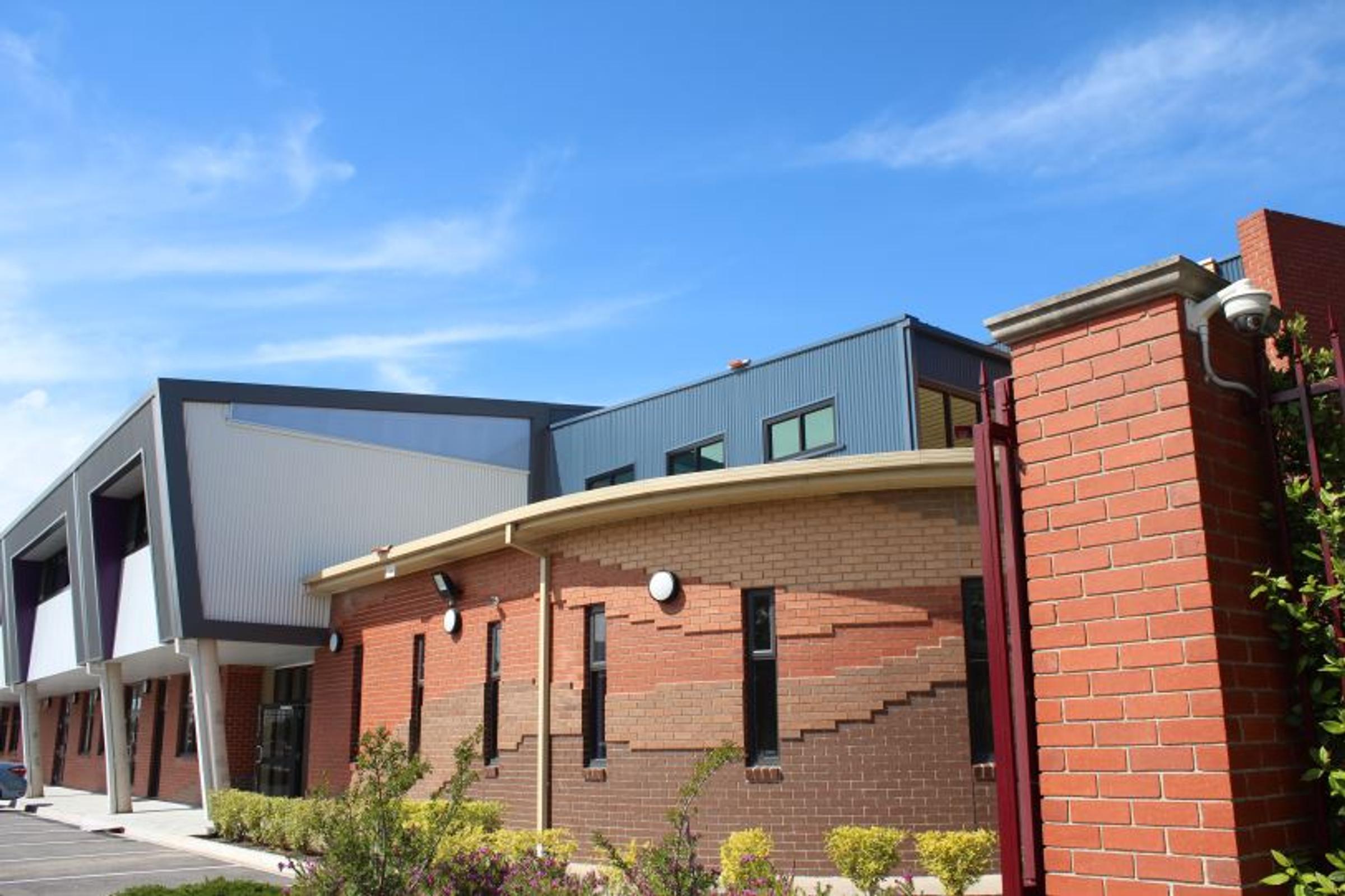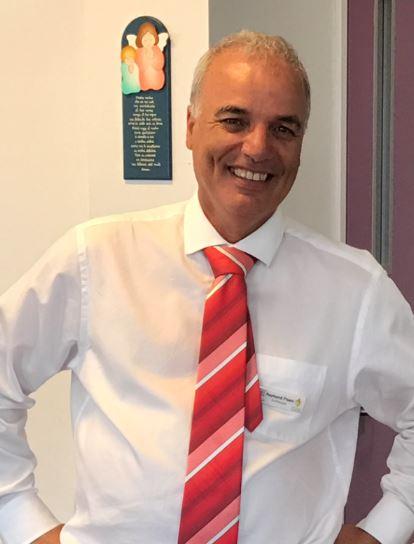Official Opening and Blessing of the Sr Martin Jones Centre, Marian College, Sunshine West

Official Opening and Blessing of the Sr Martin Jones Centre, Marian College, Sunshine West
We had great pleasure in officially opening our new Science and VCAL facilities last Wednesday 7 November. Invited guests included Sr Maree Marsh csb and Rosemary Copeland (Co-Chairs of the Trustees of Kildare Ministries), Mr Michael Doyle (Chair Kildare Education Ministries Board), Fr Jude Pirotta (Parish Priest St James Hoppers Crossing and College Chaplain), Brigidine Sisters, Rita Grima, neighbouring school Principals and representatives from Kildare Education Ministries, Catholic Education – Western Region, Catholic Capital Grants, Minx Architecture, Magellan Builders, Staff and Students. Most especially we welcomed back Sr Martin Jones csb after whom the Science Centre is named.
It is quite appropriate that we opened the VCAL Centre and the Science Centre at the same time because the philosophy behind applied learning can fit so easily within the science pedagogy and in fact any learning and teaching pedagogy. Our Victorian Certificate of Applied Learning program identifies where students are at, identifies their interests in order to make learning relevant and provides opportunities for the students to share knowledge and learn from each other. In applied learning, we acknowledge and value that everyone learns differently, we encourage different learning styles and in turn the assessment we use is the one that best fits the content and context. When the whole person is considered, self-worth and confidence is developed. There is an integrated approach to learning where skills and knowledge are entwined in real life needs, problems and challenges that enable the students to connect with people, life and experiences outside the boundaries of the College.
The growth in our applied learning numbers indicates that it is a popular option for learners who are seeking something different to the more traditional and academic approaches to learning. Our teaching staff, too, have had to adapt and respond to the different approaches to learning and thereby support enquiring minds, maintain a focus on team and community, and present pathways that connect with life outside the school. In many ways the staff have been on the same learning journey as the students. Our goal is to ensure that the applied learning program at the College is rigorous and robust, integrates theoretical knowledge with practical skills, and provides for personal growth and community participation. One example of us moving towards our goal are these playground friendship benches that the VCAL students have constructed which will go to our Parish Primary schools to support their wellbeing program.
Similarly there has been much advancement in the science program and there is no doubt that we need to continue to promote further opportunities that open pathways for girls in this area. A research paper published by UNESCO in 2017 entitled “Cracking the code: Girls’ and women’s education in science, technology, engineering and mathematics (STEM)” highlighted the need for girls education to take a lead. The paper noted that only 17 women have won a Nobel Prize in physics, chemistry or medicine since Marie Curie in 1903, compared to 572 men. Today, only 28% of all of the world’s researchers are women. The Australian Bureau of Statistics 2011 Census found that 16% of STEM qualified people were female and from the percentage of STEM graduates earning in the top income bracket ($104 000 or above) 32% were male and 12% were female. Such huge disparities, such deep inequality, do not happen by chance.
As an educational institution we play a key role in promoting interest in Science and STEAM and thereby providing equal access to any benefits that present themselves. Evidence suggests that hands-on activities, for example in laboratories, can enhance girls’ interest.
Catholic education strategy in the Science domain has three guiding principles that seek to:
• connect schools with each other, with external organisations, and with the community
• support schools to start new initiatives and endeavours in science
• extend teachers and students to lead scientific discovery in the 21st Century for the benefit of society.
Hence, there are specific outcomes desired for students from a Catholic science education. We want students that are bold and confident participants in a constantly changing 21st century world and appreciate science as a way of knowing about the world.
Our students are to possess a sense of awe and fascination about the world whilst at the same time develop an understanding of the impact of science on society. They determine how they will access accurate information and make informed decisions about what will be useful to them in future decision making. They will understand the nature of science and those science concepts that are relevant and useful to their lives, accept a responsibility towards the natural environment and accept a care for God’s creation. Students need to examine the values behind the science and participate in informed debate about science explanations and their associated moral and ethical issues. Students are in a prominent position to engage with science and become intrinsically motivated to take on its challenges whilst see the potential for science to contribute to the common good. They must be empowered to enrich the world with direction, meaning, purpose and hope.
Of course it is important that our students have role models who display a love and passion for delving into the unknown and sharing their learning with others. So it is with much pleasure and pride that the science facility is named after someone who has had an impact on many here within our Community. Sr. Martin. People will ask of her contribution here and the story will be told with much admiration and respect. Sr. Martin we thank you for your positive influence on the growth of the College over many years.
Finally, the vision, plans, funding, construction and maintenance of these buildings does not just happen so it is appropriate to acknowledge the efforts of those involved in allowing us to use these facilities.
Firstly, to the students. Thank you for your desire to expand your knowledge and thinking. Use these facilities with a mind to contribute something back to the wider community.
Thank you to the staff, especially the VCAL and Science staff, for allowing students to share the love of learning. We acknowledge your expertise and for sharing the dream to provide the best for our students.
The Opening was a wonderful occasion and I thank all those who were involved in the organisation and preparation of the day.


Raymond Pisani
Principal